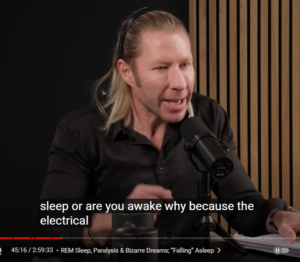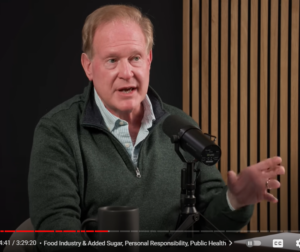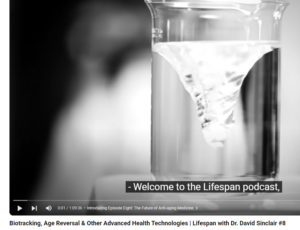
Dr. Matthew Walker: Protocols to Improve Your Sleep | Huberman Lab Guest Series
Sleep is one of the fundamental pillars of health, influencing everything from our mental acuity to our physical resilience. In a profound discussion between neuroscientist Dr. Andrew Huberman and sleep expert Dr. Matthew Walker, we are offered a wealth of science-based advice on optimizing our sleep. This conversation unpacks the intricacies of sleep hygiene, the impact of diet and substances, and cutting-edge tools that could revolutionize our sleep quality.
The Pillars of Sleep Hygiene
Dr. Walker identifies regularity as king when it comes to sleep hygiene. He stresses the importance of going to bed and waking up at the same time every day. This consistency trains our brain’s circadian clock, enhancing both sleep quality and duration.
Light, Darkness, and Temperature
The discussion further delves into the roles of light and darkness. Huberman emphasizes the need for bright light in the morning to halt melatonin production, which signals our brain it’s time to wake up. Conversely, Dr. Walker recommends dimming lights in the evening to encourage melatonin release, setting the stage for sleep.
Temperature is another critical factor discussed. A cooler bedroom helps lower body temperature, a necessary step for initiating sleep. Dr. Walker suggests keeping the bedroom around 67 degrees Fahrenheit for optimal sleep conditions.
The Impact of Diet and Substances
Alcohol and caffeine are two substances with significant impacts on sleep. Alcohol, while it may seem to aid in falling asleep, actually disrupts the sleep cycle and blocks REM sleep, the stage associated with memory consolidation and emotional regulation. Caffeine, with its long half-life, can impede one’s ability to fall and stay asleep if consumed late in the day.
Innovative Sleep Tools
Looking forward, both experts discuss the potential of new tools to enhance sleep quality. Technologies that control room temperature or use light-based cues to maintain circadian rhythms are on the horizon. These tools represent the next frontier in personal health optimization, making tailored sleep enhancement a near-future reality.
Conclusion
The conversation between Dr. Andrew Huberman and Dr. Matthew Walker provides a compelling overview of the science of sleep. By adhering to structured sleep hygiene, moderating the intake of disruptors like alcohol and caffeine, and considering the use of emerging technological aids, we can significantly improve our sleep quality, thereby enhancing overall health and wellbeing.
This deep dive into the biology of sleep underscores its critical role in our lives and highlights actionable strategies that anyone can implement to harness the benefits of better sleep.




